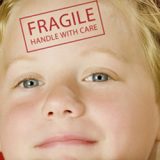Young child need not be examined for discovery.
On March 12, 2015, a judge of the BC Supreme Court dismissed a defense application to conduct an examination for discovery of an 8 year old plaintiff in a motor vehicle accident lawsuit.
In Dann-Mills v. Tessier, 2015 BCSC 386, the plaintiff was injured involved in a serious motor vehicle accident when he was 17 months old, allegedly suffering a serious traumatic brain injury. A lawsuit was brought on his behalf by a litigation guardian. The defendants sought a court order compelling the child to undergo an examination for discovery. The Court found that this would be inappropriate and dismissed the application. In doing so Mr. Justice Voith provided the following reasons:
[38] I question the possible utility or value of any examination for discovery of Jorin, particularly in light of some of the medical conclusions I have identified. It was this issue that I canvassed most fully with counsel for the applicant.
[39] It is generally understood that the central objects of an examination for discovery are:
i) to enable the examining party to know the case it must meet;
ii) to enable a party to procure admissions which will dispense with other formal proof of its case; and
iii) to procure admissions which will damage an adversary’s case.
See e.g. Frederick M. Irvine, ed., McLachlin & Taylor, British Columbia Practice, loose-leaf, 3rd ed. (Markham: LexisNexis, 2006) at 7-178.
[40] The applicant and other defence counsel accepted that they had no desire to obtain any “admissions” from Jorin on discovery. Instead, the applicant said that the “primary reason” for Jorin’s intended discovery related to the first consideration I identified; that being, to enable the defence to know the case that it must meet.
[41] Respectfully, I struggle to see how this can be so. This is not a case where the defendants may be surprised by Jorin’s evidence at trial. Jorin will not be present at the trial. Instead, the whole of Jorin’s case will be established by expert evidence, of which the defendants will have ample notice, and through other witnesses. The defendants can examine Jorin’s father and his grandmother (Jorin’s litigation guardian). They can interview his teachers and his special-needs assistants. In earlier applications, it became clear that Jorin, who requires full-time supervision, has had a series of caregivers. These sources are likely to be far more fruitful and reliable than the examination for discovery of an infant who, there is reason to believe, without deciding that it is so, struggles with comprehension, attention and language difficulties.
[42] The last basis for an examination of Jorin that was raised by counsel for the applicant was a desire, in a sense, to see Jorin and how he functions. There is significant disparity in the existing medical opinions on Jorin’s functionality. I have referred to some of these differences earlier in these reasons. Other differences are apparent in the letters of Drs. Purtzki and Joschko, respectively. Counsel considers that some opportunity to see and interact with Jorin would potentially be helpful for settlement and other purposes.
[43] First, it would appear that a discovery of Jorin would only achieve this object for the single counsel who conducted the examination for discovery, and not for the teams of counsel who represent the various defendants in this action. I cannot imagine that the intention would be to conduct the examination in the presence of all counsel who are involved in these actions.
[44] Second, though I do not question counsel’s expressed goal, I consider that this object can be otherwise achieved. I suggested to counsel that Jorin might be videotaped, or that counsel might possibly view Jorin, at a medical examination, through a glass mirror. Though counsel for Jorin indicated he would not be opposed to such endeavours, I was also told by counsel for the defendants that the examining independent medical practitioners might object. Nevertheless, I consider that with some ingenuity there are far better means available to get a sense of Jorin and his functionality than a brief examination for discovery would yield.
[45] In all the circumstances, I do not consider that an examination for discovery of Jorin would be appropriate, and I am unprepared to allow that examination to take place.





